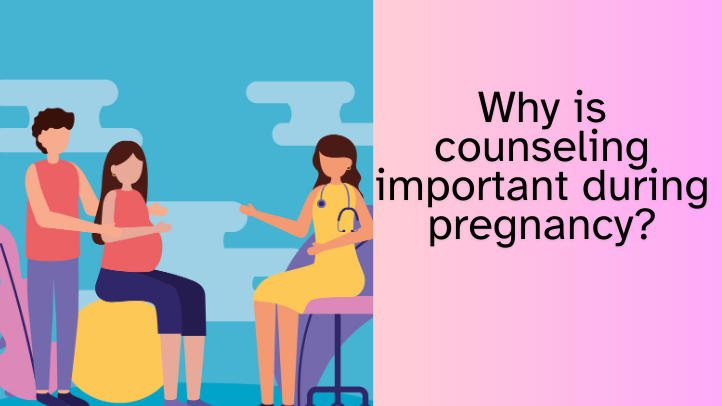
Why is Counseling Important During Pregnancy? During pregnancy, a woman’s body and mind undergo many changes. Physical changes and challenges are majorly seen, but mental health and other psychological issues related to pregnancy are not discussed widely. Such things are often overlooked.
A girl’s transition to motherhood can cause “much joy mixed with loss and fear.” Prenatal counselling helps women resolve these conflicting feelings and strengthen their emotional well-being while the baby is still in the womb. Many women do not feel free to discuss their pregnancy-related fears and doubts. They fear being judged and may feel uncomfortable expressing their deepest fears or insecurities. Professional counselling for pregnant women helps everyone find a suitable solution for themselves. Counselling during Pregnancy may not be “necessary” for everyone, but it could benefit every mother.
Counselling is an important asset for expectant parents facing a difficult journey. By offering support, information, and guidance, these services aim to empower parents and give them the tools to make informed decisions and resolve potential issues.
Prenatal counselling offers the expectant mother a safe space to talk about concerns that are not always discussed before or during pregnancy. It is an opportunity for a woman to deal with conflicting feelings and strengthen her mental well-being through supportive treatment.
If you are looking for pregnancy counselling, here are some important points to consider:
Motherhood is a journey full of excitement, and hope. But for some expectant parents, the road to parenthood can be filled with challenges and uncertainties. This is where high-risk pregnancy counselling plays a key role, providing guidance, support, and strength to navigate the complexities of pregnancy. Let’s explore why counselling is essential during pregnancy for expectant mothers and fathers.
High-risk pregnancy counselling offers expectant parents individualized care tailored to their needs and circumstances. Patients should have control and choice over how their care is planned and delivered. Through personal consultations, health professionals can assess the unique risk factors involved and create a comprehensive plan for effective pregnancy management and monitoring.
A woman can give birth in many ways. The counsellor will help you understand the different options available, their pros and cons, and help you determine which method might work best for you. Many such counsellors can even recommend birth centres that offer what you are looking for.
Breastfeeding is one of the most natural stages for a new mother, but it can be very difficult. It is important to understand the proper ways to breastfeed, the many options available, and how to take care of your body while breastfeeding. These counsellors can also help you find alternatives to breastfeeding for a variety of reasons. Counselling can help you deal with the uncertainty of this critical phase without shame or doubt.
It is pre-eminent to follow a nutritious and balanced diet during pregnancy. A nutritionist can help you understand the need for a healthy diet and create a meal plan that meets your needs and preferences.
Pregnancy education is really important. Counseling sessions during pregnancy provide valuable information on topics, like prenatal care, labor and delivery, postpartum recovery, and newborn care. With this information and support, expectant parents can make informed decisions and actively participate in their care journey.
Dealing with pregnancy can bring a range of emotions, including fear, anxiety, and uncertainty. By doing Counseling soon-to-be parents get a safe, and comfortable space to openly express their concerns, fears, and questions. By addressing mental well-being alongside physical health, counselling helps relieve stress and promote mental resilience throughout the pregnancy journey.
Counselling sessions provide an opportunity to conduct a thorough risk assessment, identify potential complications, and implement mitigation strategies. This may include regular monitoring of maternal and fetal health, lifestyle changes, dietary recommendations, and medical procedures if necessary.
Counselling, contrary to popular belief, is not “unnecessary”. Especially during pregnancy, counselling is a safe way to clarify doubts and avoid following myths without understanding their reasons. By guiding the path, these services focus on empowering parents and helping them make informed decisions. If you are pregnant and have doubts or fears, seek professional help – just as you would seek medical advice from your gynaecologist.
Copyright © 2025 Dr Ahuja Clinic. All Rights Reserved | Marketing by : WebHopers
Website Design by CSW Technologies